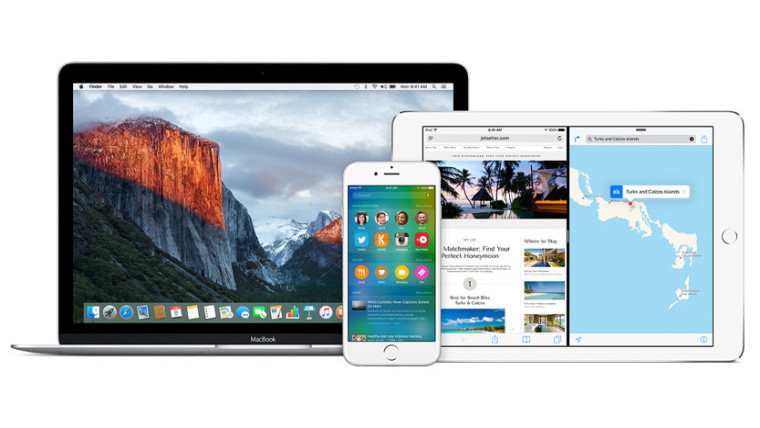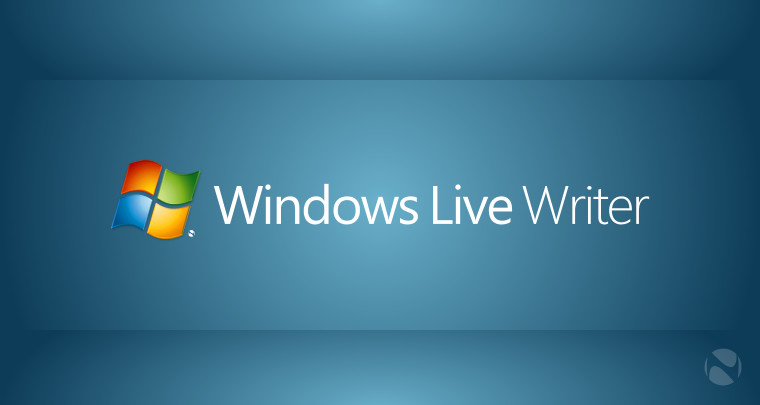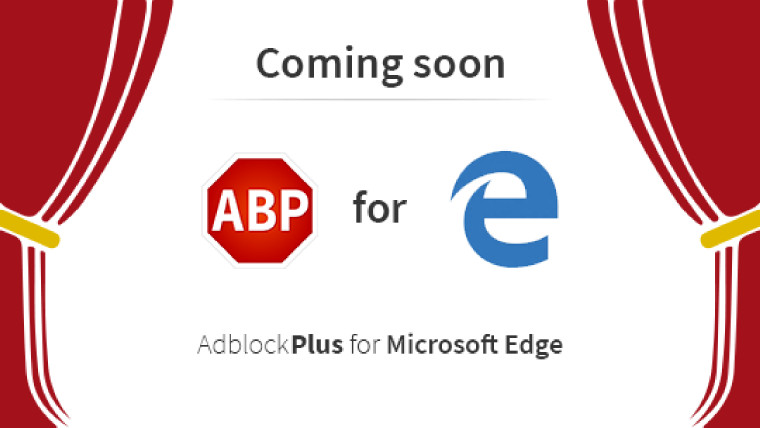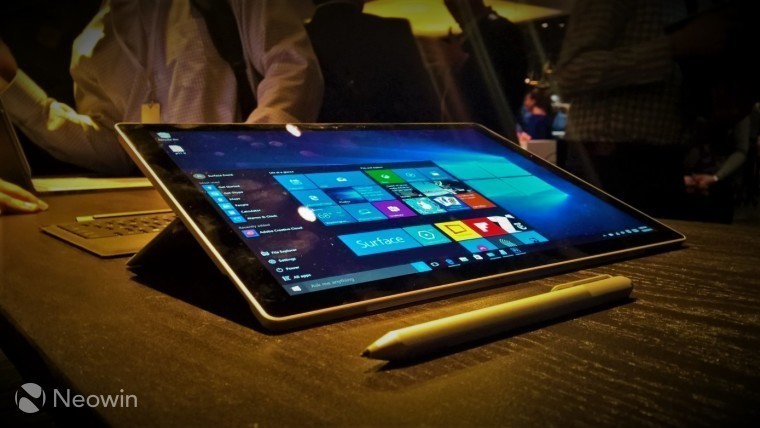
7 Days is a weekly round-up of the Editors' picks of what's been happening in the world of technology - written with a dash of humor, a hint of exasperation, and an endless supply of (Irish) coffee.

The year is drawing to a close, but the news has continued to pour in thick and fast from across the tech world, with no signs of slowing down for the holiday period. It’s been a remarkable year, and not just in technology circles, of course, as Twitter showed this week, when it shared insights into the top global trends and defining moments of 2015, as viewed through the lens of its social network.

Meanwhile, Microsoft has been looking ahead to the new year and beyond. 16 of its ‘future tech’ researchers shared their predictions for the technological and scientific shifts and advancements that they expect to see in 2016, and over the next ten years.

Microsoft’s Bing team launched its ‘2016 Election Experience’ on Tuesday, eleven months ahead of the US presidential elections. The new search features are intended to offer “clarity and insight” into the candidates and their positions on the issues that matter most to voters, in what’s already shaping up to be a very exciting race to the White House.

Of course, even without Bing’s election tools, you’ll already be familiar with controversial candidate Donald Trump. In an effort to demonstrate his superior knowledge of national security issues this week, Trump said that the US is “losing a lot of people because of the internet”.
His solution to this vaguely defined problem was simple: “closing that internet up” in “certain areas”. How exactly would he do this? By enlisting the help of “Bill Gates and a lot of different people who really understand what’s happening.”
Riiiiiight...
Hacktivist group Anonymous demonstrated its condemnation for Trump’s anti-Muslim policies this week by targeting one of his websites with a sustained DDoS attack, and issued a video message calling for Trump to “think twice” before he says anything else in the future.

Anonymous recently declared ‘war’ against terrorist group ISIS, in the wake of the horrifying attacks across Paris last month, which killed 130 people. Anonymous called for citizens of the world to unite in a ‘day of trolling’ against the terrorists – but the ISIS-affiliated 'Islamic Cyber Army' responded by publishing personal details – including names, addresses and phone numbers – of high-ranking French and US military officials.

Lenovo is no stranger to security problems on its PCs – but yet again, fingers are pointing at the Chinese manufacturer over vulnerabilities on its systems caused by insecure software pre-installed on its devices. A researcher also found similar security flaws created by system software on PCs from Dell and Toshiba.

The European Commission filed antitrust charges on Tuesday against Qualcomm, asserting that the chip-making giant had abused its dominant position in an attempt to force one of its competitors out of the market.

The smartphone market is fiercely competitive – and Mozilla finally faced up to that reality on Tuesday, as it declared an end to Firefox OS handsets. Mozilla conceded that it wasn’t “able to offer the best user experience possible”, but while its smartphone efforts are at an end, Firefox OS will live on across other devices.

Google published its latest breakdown of Android platform usage this week, showing the proportion of active devices running each version of the OS. The data show that, over a year after its release, Android 5.0 Lollipop is now on 29.5% of devices – but two months after 6.0 Marshmallow’s rollout began, just 0.5% are running that version so far.

Google also began rolling out Android 6.0.1 this week. The update includes a refreshed Google Keyboard, along with new and improved emoji; and there’s also a small tweak to the layout of the universal system navigation buttons on (some) Android tablets.

Meanwhile, Apple rolled out iOS 9.2 this week, bringing a long list of fixes and improvements, along with a few small, but welcome new features.
Apple also released an update for OS X El Capitan – and among various other fixes, it’s aimed at boosting the reliability of Wi-Fi performance on Macs.

One of the most consistent complaints among iPhone owners is that the handsets just don’t offer enough battery life. Indeed, many reacted with astonishment when they learned in September that Apple had made the batteries in its latest iPhones even smaller than those of its predecessors.
This week, Apple implicitly acknowledged those complaints, by launching the Smart Battery Case. With looks that only a mother could love, the $99 accessory is considerably more expensive than many third-party options, while offering less battery capacity than many of those cheaper alternatives.
Perhaps Apple should just stop obsessing over making its iPhones so thin, so they can finally fit batteries into their devices with a bit more juice. Of course, if they did that, then they wouldn't be able to profit by offering a high-priced solution to a problem of their own making.
It seems fair to say that Apple has been making some very odd design choices lately.

And while Apple’s approach to hardware design and user experience seems to have stumbled onto some rocky terrain in recent months, the company’s reality distortion field isn’t working quite as well as it used to either.
This week, Apple claimed on its site that it was “the first major computer company to make Open Source development a key part of its software strategy” – a statement that was immediately met with widespread derision across the web. (The company quietly revised that statement after the roars of laughter failed to die down, but ZDNet has a good explanation of why that claim was so misleading in the first place.)

Earlier this year, Microsoft’s Scott Hanselman revealed plans to open source Windows Live Writer, the popular blogging software that last received a major update in 2012. This week, Hanselman and a group of other volunteers from Microsoft announced that they had “successfully open sourced and forked” the software, with a new release known as 'Open Live Writer'.

Back in May, Microsoft revealed plans to launch its digital assistant, Cortana, on iOS and Android. After various preview releases, the company announced the official launch of Cortana on those platforms on Wednesday, along with “the deepest integration available on any Android device” for Cyanogen OS.

Details emerged on Thursday relating to Microsoft’s plans to improve Cortana on Windows 10 as part of its Redstone updates in 2016. The company is said to be “experimenting with having Cortana float around Windows 10” on PCs, while contextual search features – similar to Google Now On Tap for Android – are reportedly being worked on for Windows 10 Mobile.

On Monday, Microsoft added its Lumia 550, 950 and 950 XL (as well as the LG Lancet) to its Windows Insider program, enabling those devices to support the latest Windows 10 Mobile Insider Preview, build 10586.29.

The following day, Microsoft rolled out that build to the Lumia 550, 950 and 950 XL for those not signed up to the Insider Program – a hugely significant step for the company.
That rollout meant that, for the first time, Microsoft had pushed a non-preview update for its mobile OS to multiple handsets, on multiple carriers, in multiple markets around the world. It seems that Microsoft has made good on its promise to deliver OS updates without carrier interference, although that first update didn’t go entirely to plan.

Microsoft also updated Windows 10 for PCs to build 10586.29, matching its latest Windows 10 Mobile release, including a range of security updates.

The company delivered a “gigantic update” to its Groove music app for Windows 10 Mobile on Wednesday, along with a more modest update for the Movies & TV app for both phones and PCs.

There are encouraging signs that Microsoft’s Universal Windows Platform – which allows developers to build apps that can run across multiple types of Windows 10 devices, including phones and PCs – is gaining traction.
On Thursday, after the release of its Universal app on Windows 10 PCs a couple of months ago, iHeartRadio brought the app to Microsoft’s new mobile OS. The new app includes Windows Hello biometric authentication, allowing users to sign in using the iris scanner on supported devices.

Ride-hailing service Uber also launched its new Universal app this week, available on Windows 10 PCs and phones. The app includes Cortana support, and the ability to pin a Live Tile to the Start screen that counts down to the arrival of your ride.

And popular music-streaming service Deezer also announced plans on Thursday to launch a Universal app, with a preview release expected in the next few weeks.

Not everyone is sold on the idea of developing Universal apps just yet though. WordPress.com launched a new desktop app for Windows this week, which it says is “simple, seamless and blazingly fast”. However, the company decided to make it a Win32 application rather than Universal, so it can run not just on the Windows 10 desktop, but also on Windows 7 and 8.1 PCs.

Microsoft originally planned to add support for extensions to its Edge web browser in Windows 10 before the end of this year – but in October, it revealed that its plans had been pushed back to 2016. But it seems that the company is now making preparations for the first preview release of that feature, as a placeholder page was (briefly) published on its site with various details, including two of the first extensions that will be supported.

Not long after that, Adblock Plus announced that its extension for Microsoft Edge is “coming soon”.

Friday was a pretty interesting day on the Microsoft front, as the company issued two apologies to its customers.
The first was offered to users of its OneDrive cloud storage service, following a massive backlash in response to changes that it announced last month, which included the removal of its unlimited storage offering for Office 365 customers, as a result of some people apparently using too much of their unlimited allowance.
While unlimited storage won’t be returning, Microsoft’s apology did include some concessions to existing users of the service, including those on its free tier.

And in a further act of contrition, Microsoft also said sorry for the “less-than-perfect experience” for some owners of its flagship Surface Pro 4 and Surface Book. Problems have included persistent display driver crashes, and a particularly frustrating issue that prevents some of the devices from entering a full ‘sleep’ state in standby mode.
As a result, many of these devices are seeing high battery drain even while not in use – but despite Microsoft’s apology, and its acknowledgement that it was aware of the problem before they shipped – it won’t be delivering a fix for that issue until next year.

Microsoft delivered an update for its Band 2 wearable device on Thursday, adding music controls, and new reminders prompting you to get off your butt and move around if you’ve been sitting down for too long, along with a couple of other handy features.
The company also shared some tips on how to get the most accurate heart rate readings from the device. As my colleague, Anthony Tosie, recently noted, the Band 2’s heart rate sensor doesn’t always deliver the most accurate results.

After reducing the cost of its Xbox One bundles for the Black Friday weekend, Microsoft has now brought those savings back through to December 26, cutting $50 off each bundle. That means that you can now pick up the console from only $299 in time for Christmas.

Over in the UK, leading pay-TV provider Sky launched a new app on the Xbox One, allowing users with Sky Multiscreen or Sky Go Extra accounts to enjoy live and on-demand content from the broadcaster, including access to its virtual Box Sets.

Ubisoft delivered some bad news for Xbox One owners looking forward to this month’s beta of Tom Clancy’s The Division, as it revealed that it’s been pushed back to “early 2016”.

Microsoft surprised owners of the Wii U on Monday as it announced that it will soon launch Minecraft on the Nintendo console.

And there was another little surprise for gamers on Monday, as a handful of screenshots were revealed for what was ultimately expected to become Half Life 2: Episode 4.
That brings back some fond memories. I think it might be time to crack open The Orange Box again…

Before we wrap things up for another week, let me just squeeze in a few extra articles around Neowin that I hope will be of interest to you.

Many of our readers joined in our latest discussion, in which we asked what – if anything – they would change on Microsoft’s new Windows 10 Mobile flagships. The company still maintains the ludicrous fiction that the Lumia 950 and 950 XL were designed ‘for its fans’, despite little evidence to support that claim – but what do fans, and others, actually think of the devices?
Check out what they had to say, and join in the discussion!

This weekend, Vlad Dudau published his review of Google’s Nexus 5X, the affordable flagship built by LG that – alongside the larger, pricier Nexus 6P – is one of its ‘showcase’ devices for Android 6.0 Marshmallow. He found that the price is certainly right for the 5X – but was it any good? Only one way to find out!
_story.jpg)
And it’s not often that we review vacuum cleaners on Neowin, but the iRobot Roomba 980 was certainly worth a closer look. Camden Krupala called it “a Wi-Fi connected, sensor-packed, dust-busting monster” – be sure to read his review, and check out some video of the new Roomba in action!
Enter our latest GLOBAL GIVEAWAY!

In the second of our Christmas giveaways, we’re offering you the chance to win a Mionix Castor gaming mouse! You can find out more about the impressive accessory in our detailed review.
There are plenty of ways to enter, and the contest is open to our readers around the world. Good luck!
The week ahead
On Thursday, Microsoft will launch Minecraft on Nintendo’s Wii U, one of the last platforms to get the phenomenally popular block-building game.
And we’re also expecting Microsoft to begin rolling out Windows 10 Mobile to the first Windows Phone 8.1 handsets in the days ahead, although Microsoft is keeping tight-lipped on those plans for now.
And in addition to the Mionix Castor contest, we’ve got more Christmas Giveaways lined up on Neowin, so be sure to stick around for a chance to win some cool stuff!
Along with the usual mix of official news, juicy rumors, and intriguing insights, it should be another exciting week!
As ever, there’s plenty more to read across the site – including loads of interesting discussions over on our forums. From all of us on the Neowin team, have a great weekend!









_small.jpg)









